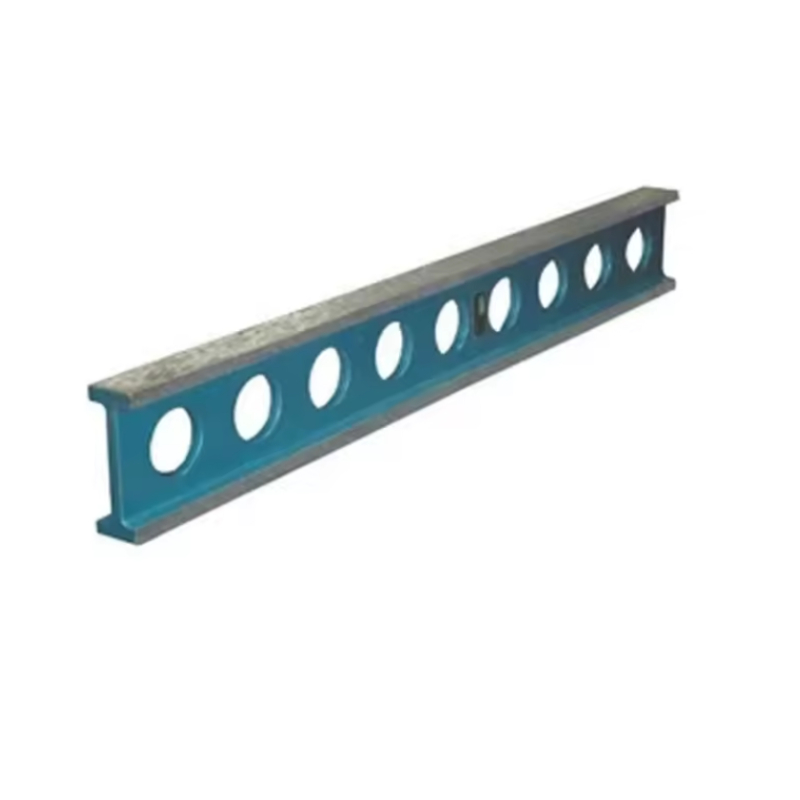Dec . 05, 2024 10:50 Back to list
Essential Measuring Instruments for Precision Metalworking Tasks and Projects
Measuring Tools for Metal Work Precision and Accuracy in Fabrication
Measuring tools are essential in metal work, ensuring precision and accuracy in fabrication and assembly processes. Whether one is a professional metalworker or a hobbyist, having the right tools can significantly impact the quality of the final product. This article will delve into the various measuring tools used in metal work, their functionalities, and the importance of precision in this field.
1. Importance of Precision in Metal Work
Precision is paramount in metal work, as even the slightest deviation can lead to misfits or structural weaknesses. Measurements need to be consistent and accurate to ensure that parts fit together seamlessly, particularly in industries such as automotive, aerospace, and construction, where safety and reliability are non-negotiable. Therefore, employing the right measuring tools is vital for achieving the desired standards.
2. Types of Measuring Tools
Metalworkers have access to a wide array of measuring tools, each designed for specific tasks. Here are some of the most common tools used in the industry
a. Calipers
Calipers are versatile measuring instruments that can provide both internal and external measurements. They come in several types, including
- Vernier Calipers Equipped with a sliding scale, they offer high precision and can measure up to a thousandth of an inch. They are commonly used for measuring the thickness of metal sheets and the diameters of rods and tubes. - Digital Calipers These provide a digital readout, minimizing the chances of human error. They can switch between metric and imperial units easily and are favored for their ease of use and accuracy.
b. Micrometers
Micrometers are highly precise instruments used primarily for measuring small distances. They are especially useful when measuring the thickness of sheet metals or the diameter of small parts. Available in different types such as outside, inside, and depth micrometers, they are crucial for situations where precision is critical.
measuring tools for metal work

Tape measures are fundamental measuring tools in any workshop, essential for measuring longer lengths of metal. They come in various lengths and are often made of flexible steel, making them ideal for taking measurements on curved surfaces. Some tape measures even feature locking mechanisms to hold the measurement in place for easier reading.
d. Rulers and Straightedges
Metal rulers are essential for straight measurements and are often used in conjunction with other tools. Made of metal for durability, they can also be used to draw straight lines which can be critical when marking metal sheets for cutting.
e. Squares
Squares, particularly combination squares, are invaluable for ensuring right angles and checking flatness. They are often used for layout work and to check the squareness of machined parts. The ability to measure and mark at a 90-degree angle is essential for creating precisely aligned components.
f. Levels
Levels are used to determine the horizontal or vertical orientation of a workpiece. Precision levels come with various features capable of measuring angles to ensure that the working surface is flat, which is critical in welding or assembling structures.
3. Calibration and Maintenance
To maintain accuracy and prolong the life of measuring tools, regular calibration and proper maintenance are essential. Tools should be routinely cleaned and checked for damage or wear. Calibration procedures, tailored for specific tools, ensure that they provide reliable measurements, instilling confidence in the final product.
4. Conclusion
In the world of metal work, precision is not just a requirement but a necessity. With a wide variety of measuring tools at their disposal, metalworkers can achieve the accurate dimensions and specifications needed for high-quality outputs. By choosing the right tools and maintaining them properly, professionals can enhance their fabrication processes, leading to better performance and superior end products. Investing time in learning the proper use and maintenance of measuring tools can significantly improve efficiency and precision in any metalworking endeavor. Whether working in an industrial setting or crafting at home, the right measuring tools are indispensable allies for achieving excellence in metal work.
-
thread-plug-gauge-our-promise-of-measurement-excellenceNewsAug.22,2025
-
gauge-pin-class-reflecting-quality-legacyNewsAug.22,2025
-
check-valve-types-for-high-rise-buildingsNewsAug.22,2025
-
water-control-valve-for-irrigation-systemsNewsAug.22,2025
-
gate-valve-with-soft-seal-technologyNewsAug.22,2025
-
y-type-strainer-for-oil-and-gas-applicationsNewsAug.22,2025
Related PRODUCTS









